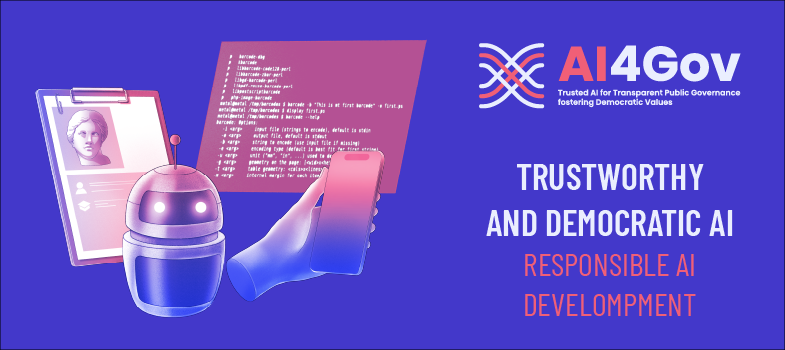Module 2: Problem of Generative AI
Key problems include:
- Misinformation and Deepfakes
- Bias and Discrimination
- Copyright Infringement
- Lack of Transparency
- Workforce Displacement
- Harmful Content Creation
- Privacy Risks
- Environmental Impact
- Erosion of Trust in Digital Information
- Governance Challenges
In Module 2, we cover the following Lessons:
TWON and SOLARIS are research projects actively assessing the impact of AI technologies on democracy, focusing on media manipulation, deepfakes, and the regulatory challenges governments face in protecting democratic systems.
LESSON 2.2: HORIZON EUROPE PROJECT SOLARIS
In today’s digital world, people get most of their news online. But with so much information out there, it’s hard to tell what’s true. This flood of content—sometimes called an “infodemic”—makes it easier for fake news and conspiracy theories to spread. Social media also creates echo chambers, where people only see opinions they already agree with, leading to more division and less understanding. Recent events, like the war in Ukraine, have shown how powerful information can be. Fake news and manipulated videos (called deepfakes) can be used to influence public opinion and even destabilize democracies. The SOLARIS Project is tackling these challenges by studying how advanced AI tools—especially Generative Adversarial Networks (GANs)—affect democracy. GANs are a type of AI that can create realistic fake content, like videos of people saying things they never actually said. These deepfakes can be dangerous if used to spread lies or manipulate voters.
Two Main Goals of SOLARIS
- Protect Democracy from Deepfakes - SOLARIS is researching the political risks of these technologies and working on new rules and tools to detect and reduce the harm they can cause.
- Use AI for Good - Instead of just focusing on the risks, SOLARIS also wants to explore how GANs can be used to engage citizens in positive ways. For example, they plan to create AI-generated content that raises awareness about important issues like climate change, gender equality, and migration—all based on shared values and citizen input.
The Big Idea
SOLARIS believes that by understanding and guiding how AI is used, we can strengthen democracy, fight misinformation, and empower citizens to make informed decisions.
Learn more:
- SOLARIS Project Website
- SOLARIS Panel Discussion: On October 30, 2024, SOLARIS hosted an online event where experts talked about how AI is changing politics, media, and public trust. They discussed both the risks and opportunities AI brings to democratic societies.
AI & Politics
AI can spread fake news and deepfakes, which may mislead voters. Experts stressed the need for rules and education to protect free speech while stopping harmful content.
Journalism in the AI Era
Journalists now face the challenge of sorting truth from AI-generated fakes. Newsrooms need to be transparent about how they use AI and train staff to handle it responsibly. Europe’s Role in AI Regulation Europe is leading with laws like the AI Act to keep AI in check. But experts say we must keep updating rules to stay ahead of fast-changing technology.
AI & Authoritarianism
Some governments use AI to control information and silence critics. Experts warned that we need to look at AI not just as tech, but as a social and political force.
The Power of Education
Teaching people how to spot fake content and understand AI is key to protecting democracy. Schools, libraries, and local groups can help build digital literacy.
Citizenship Education
People need to learn how to use AI responsibly and think critically about what they see online. Education and regulation must go hand in hand to keep democracy strong.
The Big Picture
The panel ended with a clear message: we need teamwork. Governments, researchers, and everyday citizens must work together to make sure AI helps—not harms—our democratic societies.
Watch the video recording of the event:
For more content on the topic, you can visit the ALGORITHM WATCH webpage:
- How does automated decision-making effect our daily lives?
- Where are the systems applied and what happens when something goes wrong?
You're almost at the finish line! Module 2 is complete. Only Quiz is left to complete the course. Keep up the good work, you're doing great!
